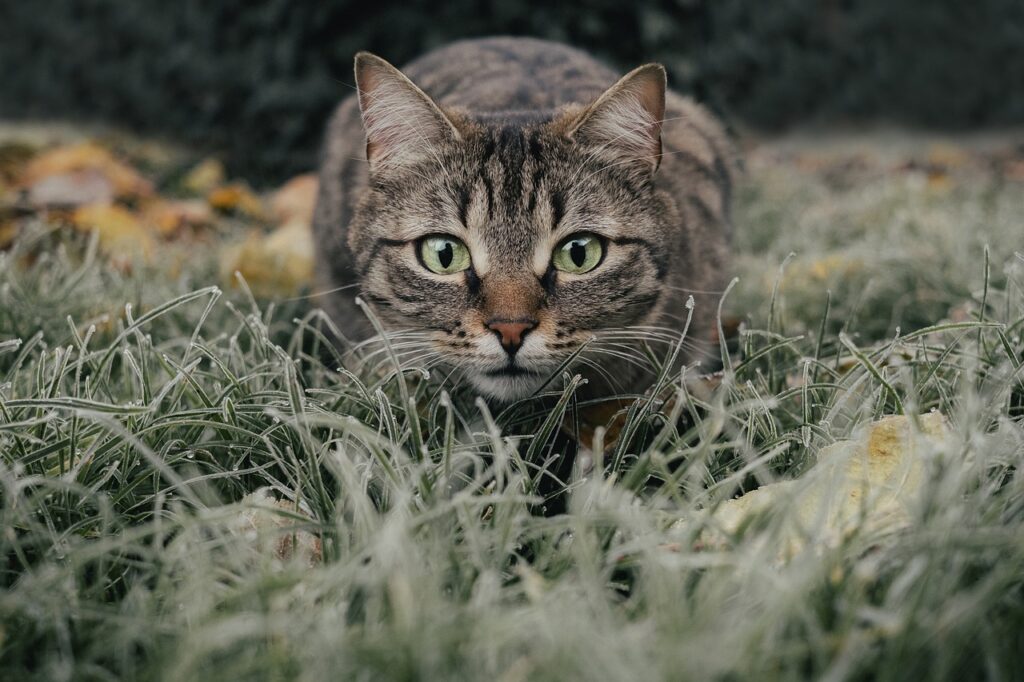Can Cats Eat Bananas? – No, They can’t
No, cats should generally not eat bananas. While bananas are not toxic to cats, they are not an essential part of their diet and can lead to health issues if consumed in large quantities. Cats are obligate carnivores, which means that their bodies are designed to digest and use only animal-based proteins effectively. The nutritional profile of bananas does not match the dietary requirements of cats, and their digestive system is not adapted to process high amounts of carbohydrates. Thus, while a tiny amount of banana occasionally might not harm a cat, it’s not advisable to make it a regular treat.
Can Kittens Eat Bananas?
No, kittens should not eat bananas. Their digestive systems are even more sensitive than those of adult cats, and feeding bananas to kittens can cause gastrointestinal issues. Kittens are in a crucial stage of growth and development, so it is vital to provide them with a balanced diet that contains all the necessary nutrients they require – which bananas do not provide. Therefore, it’s best to stick to high-quality kitten food specifically formulated to support their growth.
Things to consider when feeding bananas to kittens?
Feeding bananas to kittens should be avoided, but if you decide to give your kitten a small taste, consider the following: monitor for any signs of digestive upset, such as diarrhea or vomiting, introduce bananas in very small quantities, and observe your kitten’s reaction, and always prioritize nutritionally complete kitten food over human food to ensure proper development. If you notice any adverse reactions after feeding bananas, consult with a veterinarian.
Nutritional Benefits of Bananas for Cats – Why Cats can have Bananas
Not an Essential Treat
While bananas contain vitamins and minerals that could theoretically benefit cats, they are not a necessary part of a feline diet. Cats receive all the nutrients they need from a high-quality commercial cat food, which is specifically designed to cater to their dietary needs.
No Added Sugar is Good
Unlike many other sweet treats, bananas do not contain added sugars, which is a positive aspect. However, they are still rich in natural sugars and carbohydrates, which are not ideal for cats’ consumption.
High in Dietary Fiber
Bananas are high in dietary fiber which can support digestion. However, cats don’t require much fiber in their diets, and too much fiber can cause digestive issues, so the fiber in bananas isn’t a significant benefit for them.
Rich in Potassium
Potassium is crucial for proper muscle function and overall cellular health, and bananas are a rich source of this mineral. While cats need potassium, they typically obtain enough from their regular diet.
Contains Essential Vitamins
Bananas contain essential vitamins like vitamin C and B6, but cats have specific requirements for vitamins, and it’s best to get them from cat food that includes the correct dose for a feline’s health.
Potential Allergies: Can Cats Be Allergic to Bananas?
While it’s rare, cats can develop allergies to any food, including bananas. If a cat has an allergic reaction to bananas, it may exhibit several symptoms.
Symptoms of Banana Allergies in Cats
- Itching and Skin Irritation: Look for signs of excessive scratching or any abnormal changes in the skin or coat.
- Digestive Upset: Symptoms such as diarrhea or vomiting can indicate a food allergy.
- Respiratory Issues: If a cat has difficulty breathing or exhibits coughing or sneezing, this could be a sign of an allergic reaction.
What to Do If Your Cat Shows Symptoms?
- Immediate Vet Consultation: Contact your vet right away to assess the reactions and provide appropriate treatment.
- Discontinue Feeding Bananas: Stop offering bananas to your cat to prevent further allergic reactions.
- Maintain a Food Diary: Keep track of what your cat eats to help identify potential allergens.
Recommended Amount: How Much Bananas Can a Cat Consume?
If you choose to feed your cat bananas, it should be in very minimal amounts. A tiny sliver once in a while is more than enough. However, it is essential never to make bananas a significant part of their diet.
Things to Consider When Feeding Bananas to Cats
Keep in mind that bananas should never replace a portion of your cat’s main diet. Avoid feeding bananas to overweight or diabetic cats due to their sugar content. Additionally, always consult with a veterinarian before introducing any human food to your cat’s diet.
How to Feed Bananas to Cats: A Quick Guide
While it’s not recommended to feed bananas to cats regularly, if you decide to give your feline a taste, be sure to do so safely and sparingly.
Served Plain
Offer a small, bite-sized piece of banana without any additional ingredients or toppings to avoid potential harmful effects.
Frozen Banana Slice
Freeze a small slice of banana for a cool treat. Make sure it’s soft enough to prevent dental damage and small enough to prevent choking.
Banana Puree Topper
Mash a tiny piece of banana into a puree and mix it with your cat’s regular food as a special treat. Use this sparingly to prevent disrupting their normal diet.
Conclusion
In conclusion, cats do not need bananas in their diet, and they should only be given as a rare treat, if at all. If you choose to feed bananas to your cat, keep it minimal, monitor for any negative reactions, and always prioritize a balanced cat-specific diet for your pet’s health and well-being. Consult your veterinarian before introducing any new food to your cat’s diet.



